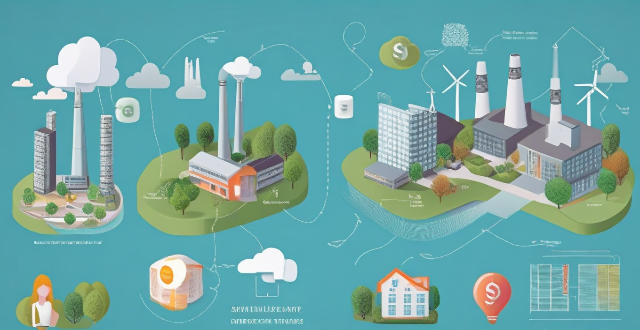In summary, energy conservation and sustainable development are interconnected concepts that share common goals. Energy conservation involves reducing wasteful consumption of energy resources, while sustainable development aims to balance economic growth, social progress, and environmental protection. The relationship between these two concepts is mutually reinforcing, with energy efficiency being a key component of both. Renewable energy sources, circular economy practices, and effective policy and governance structures are also essential for achieving sustainability goals. By prioritizing these principles, we can work towards a more sustainable future for ourselves and future generations.

Relationship between Energy Conservation and Sustainable Development
Energy conservation and sustainable development are closely related concepts that work together to promote a more sustainable future. In this response, I will explore the relationship between these two concepts in detail.
Energy Conservation
Energy conservation refers to the practice of using less energy to perform the same tasks or achieve the same goals. It involves reducing wasteful consumption of energy resources by implementing efficient technologies, adopting energy-saving practices, and promoting awareness about the importance of energy conservation.
Benefits of Energy Conservation
1. Reduced Environmental Impact: By conserving energy, we can reduce greenhouse gas emissions and air pollution, which contribute to climate change and environmental degradation.
2. Economic Benefits: Energy conservation can lead to cost savings for individuals, businesses, and governments, as they use fewer resources to achieve their goals.
3. Increased Energy Security: Conserving energy reduces dependence on non-renewable sources of energy, such as fossil fuels, making it easier to transition to renewable energy sources.
Sustainable Development
Sustainable development is a holistic approach to development that aims to meet the needs of the present without compromising the ability of future generations to meet their own needs. It involves balancing economic growth, social progress, and environmental protection.
Principles of Sustainable Development
1. Integration: Sustainable development requires an integrated approach that considers economic, social, and environmental factors simultaneously.
2. Equity: It emphasizes fair distribution of resources and opportunities, both within and among countries.
3. Precaution: Sustainable development encourages precautionary measures to prevent harm to the environment and human health.
4. Participation: It promotes active participation of all stakeholders, including local communities, in decision-making processes.
Relationship between Energy Conservation and Sustainable Development
The relationship between energy conservation and sustainable development is interdependent and mutually reinforcing. Here are some ways in which these concepts are related:
Energy Efficiency as a Key Component
Energy efficiency is a crucial component of both energy conservation and sustainable development. By improving energy efficiency, we can reduce energy consumption while maintaining or even improving the quality of life. This leads to reduced environmental impact and increased resource efficiency, which are essential for sustainable development.
Renewable Energy Sources
Renewable energy sources, such as solar, wind, and hydropower, play a vital role in both energy conservation and sustainable development. These sources provide clean and sustainable alternatives to non-renewable energy sources, reducing greenhouse gas emissions and promoting a more sustainable energy system.
Circular Economy
The concept of a circular economy, where resources are recycled and reused rather than disposed of, is closely related to both energy conservation and sustainable development. By conserving energy through efficient use and recycling materials, we can reduce waste and promote a more sustainable economy.
Policy and Governance
Effective policy and governance structures are necessary for both energy conservation and sustainable development. Governments can implement policies that promote energy efficiency, renewable energy adoption, and sustainable practices across various sectors. Collaboration between different levels of government and stakeholders is crucial for achieving sustainability goals.
In conclusion, energy conservation and sustainable development are closely interconnected concepts that share common goals and principles. By prioritizing energy efficiency, adopting renewable energy sources, promoting circular economy practices, and implementing effective policies, we can work towards a more sustainable future for ourselves and future generations.